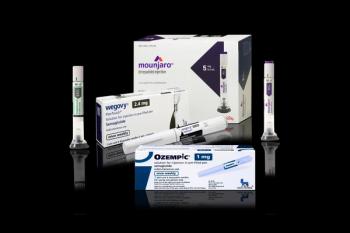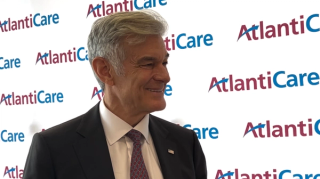
Health Care Delivery
Latest News

Latest Videos

Podcasts
CME Content
More News

A CCS report found that pharmacists lack time for diabetes education as workloads rise, worsening disparities and threatening adherence.

Scott Soefje, PharmD, MBA, BCOP, discusses how remote patient monitoring and caregiver support enable safe outpatient delivery of bispecific antibodies and antibody-drug conjugates.

Public health must address emotional and structural inequities, emphasizes Perry N. Halkitis, PhD, MS, MPH, dean of the Rutgers School of Public Health.

As the hospital-at-home model grows, a consortium is needed to advance scalability, equity, caregiver well-being, and cost efficiency through research and collaboration.

Research highlights disparities in anti-obesity medication use and metabolic and bariatric surgery.

This study describes the current opportunities and obstacles associated with Medicare Diabetes Prevention Program implementation from the novel perspective of program suppliers across the US.

Stronger partnerships between primary care and oncology improve patient outcomes by ensuring coordinated care and addressing financial and systemic barriers, says Mark Fendrick, MD.

The European Association for the Study of Obesity now recommends the 2 treatments for obesity and most associated complications.

Adverse events related to the immune system tended to accumulate over time when patients used immune checkpoint inhibitors (ICIs) over time.

Programs such as Meds to Bed can work in tandem with retail pharmacies to offer accessible medications for patients.

Timothy W. Cutler, PharmD, associate chief of ambulatory care at UC Davis Health, describes how pharmacy services patients healthy and out of the hospital.

The risk of pneumonia-related hospitalization increased the most for patients using non-TNFi biologics, climbing by 257% compared with controls.

Oncology pharmacists now work alongside providers to improve efficiency, patient education, and treatment outcomes, according to Scott Soefje, PharmD, MBA, BCOP.

Immune gene signatures were linked to illness severity and treatment response in sepsis and other critical conditions.

Emma Guttman-Yassky, MD, PhD, discusses the long-term efficacy of deuruxolitinib in alopecia areata.

Hope Krebill of the Masonic Cancer Alliance at the University of Kansas Medical Center outlines patient navigation models that improve outcomes and reduce missed appointments.

Cardiopulmonary risk is high and persistent across the entire COPD disease course, making early recognition and integrated care crucial.

Research reveals strong connections between muscle strength and cognitive function in patients with COPD, highlighting the potential for rehabilitation strategies.

Ratna Kiran Bhavaraju-Sanka, MD, and Beth Stein, MD, explore how understanding MG subtypes and patient characteristics enhances targeted therapy and personalized treatment.

Nerandomilast for idiopathic pulmonary fibrosis potentially improves survival and slows disease progression, explains Justin Oldham, MD, PhD, MS, FIBRONEER steering committee member.

Laxmi Patel urges rural hospitals to align leadership early and build logic models to show how transformation funds can drive access, equity, and sustainability.

Expanding community-based cancer services brings advanced treatments closer to home and addresses social determinants of health, says Kathy Oubre, MS.

Hope Krebill, MSW, BSN, RN, discusses the challenges rural hospitals face in delivering therapies like CAR T and bispecifics.

Integrating these care services can enhance patient QOL and address unmet needs in serious respiratory illnesses, explains Natasha Smallwood, BMedSci, MBBS, MSc, Monash University.

Teamwork between primary care providers and oncologists helps patients get needed care and achieve better results, according to Mark Fendrick, MD, at the Patient-Centered Oncology Care (PCOC) conference.

















